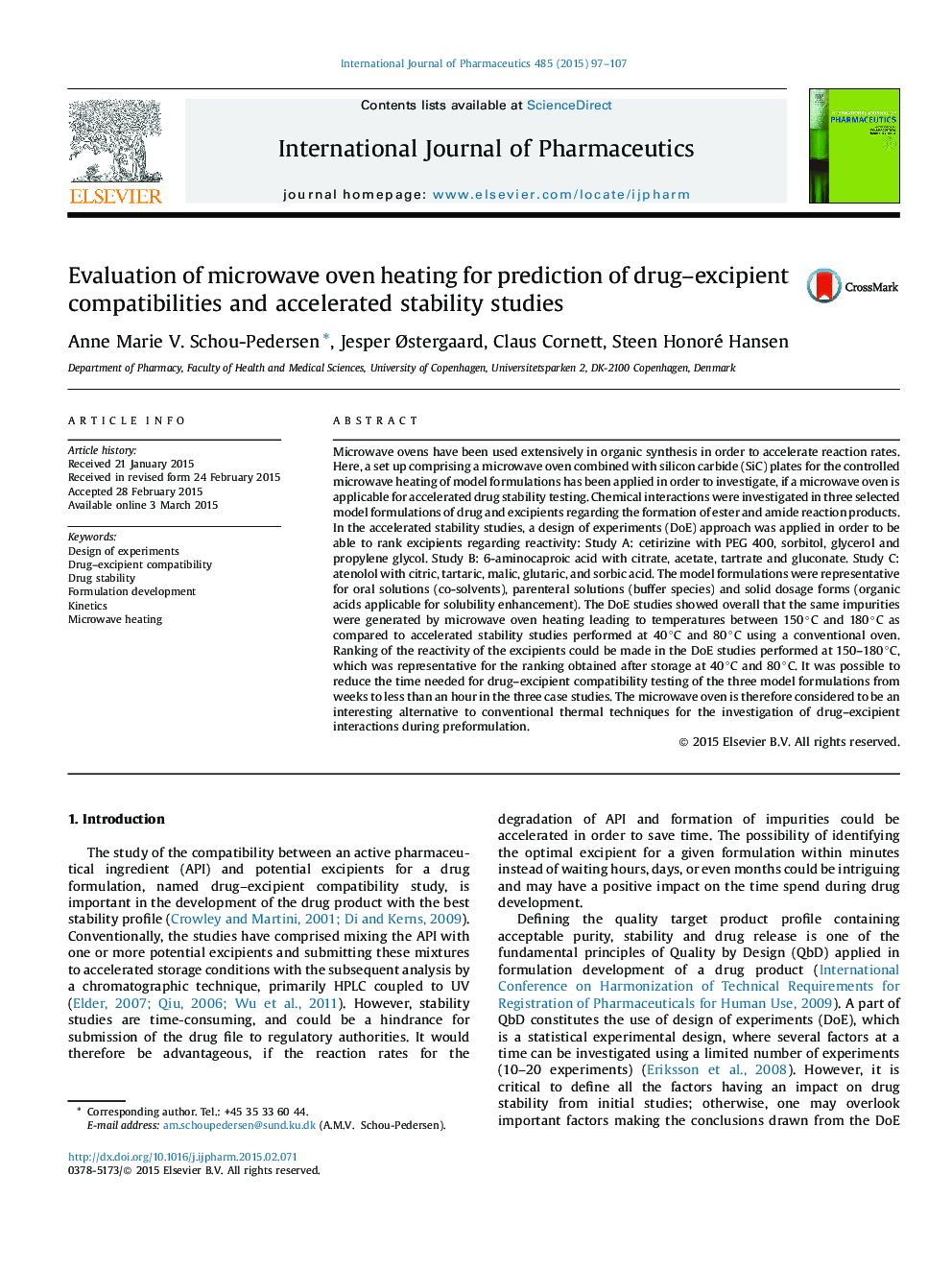| کد مقاله | کد نشریه | سال انتشار | مقاله انگلیسی | نسخه تمام متن |
|---|---|---|---|---|
| 2501443 | 1557339 | 2015 | 11 صفحه PDF | دانلود رایگان |
Microwave ovens have been used extensively in organic synthesis in order to accelerate reaction rates. Here, a set up comprising a microwave oven combined with silicon carbide (SiC) plates for the controlled microwave heating of model formulations has been applied in order to investigate, if a microwave oven is applicable for accelerated drug stability testing. Chemical interactions were investigated in three selected model formulations of drug and excipients regarding the formation of ester and amide reaction products. In the accelerated stability studies, a design of experiments (DoE) approach was applied in order to be able to rank excipients regarding reactivity: Study A: cetirizine with PEG 400, sorbitol, glycerol and propylene glycol. Study B: 6-aminocaproic acid with citrate, acetate, tartrate and gluconate. Study C: atenolol with citric, tartaric, malic, glutaric, and sorbic acid. The model formulations were representative for oral solutions (co-solvents), parenteral solutions (buffer species) and solid dosage forms (organic acids applicable for solubility enhancement). The DoE studies showed overall that the same impurities were generated by microwave oven heating leading to temperatures between 150 °C and 180 °C as compared to accelerated stability studies performed at 40 °C and 80 °C using a conventional oven. Ranking of the reactivity of the excipients could be made in the DoE studies performed at 150–180 °C, which was representative for the ranking obtained after storage at 40 °C and 80 °C. It was possible to reduce the time needed for drug–excipient compatibility testing of the three model formulations from weeks to less than an hour in the three case studies. The microwave oven is therefore considered to be an interesting alternative to conventional thermal techniques for the investigation of drug–excipient interactions during preformulation.
Figure optionsDownload high-quality image (151 K)Download as PowerPoint slide
Journal: International Journal of Pharmaceutics - Volume 485, Issues 1–2, 15 May 2015, Pages 97–107
